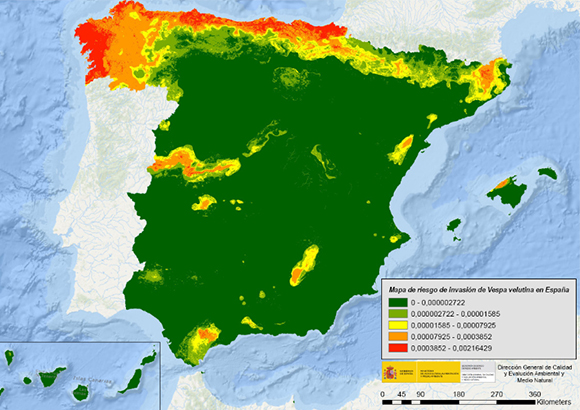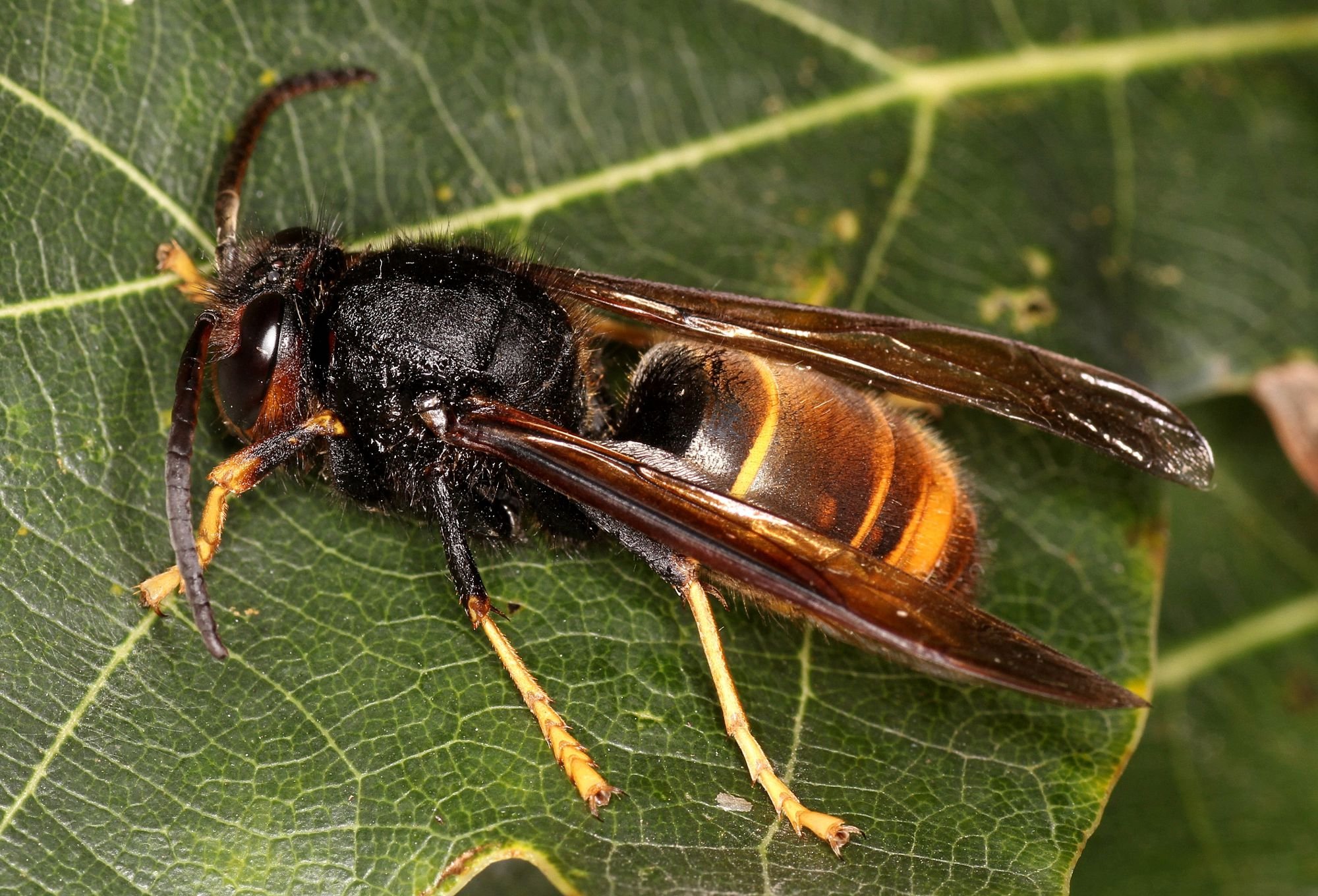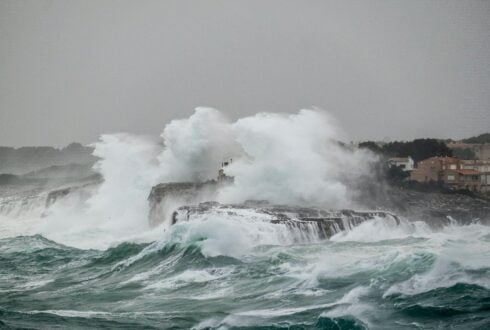A 54-YEAR-OLD beekeeper has been killed after he was stung in the face by an Asian Hornet yesterday in Santiago de Compostela, northern Galicia.
Emergency services were called to the Villestro area of the town after the man was found laying on the floor next to his own hive of honey bees.
Attempts to revive the man were unsuccessful and he was pronounced dead on the scene.
Details of the case prompted panic and scaremongering among various media outlets, falsely claiming that the insect in question was a Giant Asian Hornet, nicknamed ‘murder hornet’ by the American press.
The Giant Asian hornet has made the news recently in the States as a number of examples have been discovered in the country for the first time in history.
The ‘Murder Hornet’, Vespa mandarinia, can grow up to two inches long and has the potential to kill a human with its highly potent sting.
However the wasp in question in Santiago de Compostela, Vespa velutina, is essentially it’s little brother, and has been in northern Spain, as well as parts of the UK and France since 2010, reported El Mundo.
Slightly larger than a normal wasp, these invasive hornets have decimated bee colonies across the northern Iberian Peninsula.

A single hornet can kill up to 30 bees per day, leaving beekeepers frantically trying to keep them under control.
In 2016, the Spanish Ministry of Agriculture, Food, and Environment created a plan to try to combat the spread of the hornet and it’s effect on the honey production in Spain.
Ecology experts have warned of the dangers of the hornet, but have insisted there is no repeat of the widespread panic that is sweeping the USA.
“The two species are very different, both is size and potency,” explained Joan Pino, CREAF Deputy Director.
“These hornets do not pose a direct threat to humans and any deaths caused by the vespa velutina has to be treated with suspicion of underlying conditions or allergies.”
Click here to read more Spain News from The Olive Press.








